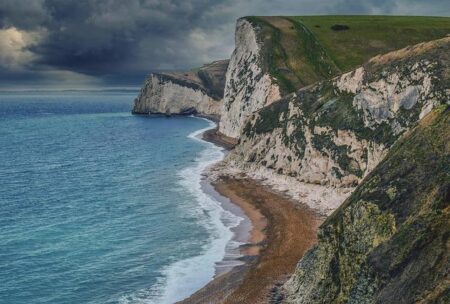Former President Trump’s daring threats to Greenland and Canada reveal mounting anxieties over Russia’s expanding Arctic shipping routes, casting a sharp spotlight on the fierce geopolitical battles transforming the rapidly changing northern frontier
Browsing: Greenland
Germany remains sharply split over the idea of boycotting the FIFA World Cup in the US, ignited by Trump’s controversial remarks about annexing Greenland, Anadolu Ajansı reports. This fiery debate is fueling tensions across political and sports circles alike
UK and European concerns reportedly convinced former US President Donald Trump to abandon his plans to purchase Greenland, Labour MP David Lammy reveals. This move highlights the fierce geopolitical tensions surrounding the strategically vital Arctic island
Former President Trump surprised many by inviting Russian President Vladimir Putin to join a peace board, despite previously labeling Russia as a threat to the US’ strategic interests in Greenland. This bold move has sparked fierce debate over his approach to diplomacy and national security priorities
Former President Trump fiercely criticized the U.K.’s decision to return the Chagos Islands to Mauritius, using it as a powerful example to argue that the U.S. should take control of Greenland. He expressed these bold opinions in a recent interview with NPR
Former President Donald Trump unveiled a surprising motivation for his interest in Greenland-a perceived slight over the Nobel Prize, revealed through texts exchanged with the Norwegian Prime Minister, USA Today reports. This unexpected revelation adds a new twist to his daring territorial ambitions
Former President Trump has ignited a new firestorm by blending his three most provocative ideas: proposing to buy Greenland, pushing to seize Canada, and imposing aggressive tariffs-sparking fierce bipartisan backlash
Germany has stepped up with a powerful show of unity, rallying the entire European Union against former President Trump’s tariff threats linked to Greenland. This decisive move underscores the EU’s unwavering solidarity amid escalating trade tensions, Anadolu Ajansı reports
President Trump has just announced a 10% tariff on imports from eight European countries, ramping up trade tensions as negotiations to purchase Greenland continue, NBC News reports
Former President Donald Trump is now setting his sights on Canada, ramping up attention on North American interests amid rising tensions over Greenland. This move underscores an escalating focus on regional assets as diplomatic rivalries continue to intensify, NBC News reports
French President Emmanuel Macron commanded attention at an urgent defense council meeting, addressing pressing security challenges tied to Greenland and Iran. Emphasizing France’s strategic priorities and unwavering dedication to regional stability, he highlighted the critical nature of these issues, France 24 reports
The German military has withdrawn its team from Greenland amid rising tensions over Arctic security, highlighting the escalating geopolitical rivalries heating up the region, according to reports from EUAD:BATS on Seeking Alpha
German military personnel are gearing up to arrive in Greenland, signaling a bold move to strengthen ties with Denmark. This deployment aims to enhance Arctic security amid rising geopolitical tensions in the region
Former U.S. President Trump has announced bold new tariffs targeting eight European countries, escalating a fierce diplomatic showdown ignited by the Greenland controversy. This move heightens tensions against a backdrop of ongoing trade disputes and global power struggles
Germany has joined forces with NATO allies on a symbolic mission to Greenland, drawing sharp attention to the Arctic’s vital strategic importance amid rising geopolitical tensions. This deployment underscores the West’s growing dedication to safeguarding the Arctic region
French President Emmanuel Macron has announced bold plans to deploy additional troops to Greenland, underscoring France’s rising strategic interest in the Arctic amid escalating geopolitical tensions, Le Monde reports
A GOP congressman has boldly broken ranks with former President Trump over the Greenland proposal, branding it outright “buffoonery.” This sharp rebuke highlights the growing fractures within the GOP over Trump’s foreign policy agenda
France and other NATO allies have deployed troops to Greenland for joint military exercises, signaling a powerful new chapter in Arctic strategic cooperation following talks with U.S. officials Vance and Rubio, ABC News reports
As President Trump turns his attention to Greenland amid rising tensions with China, experts express skepticism about the US’s ability to effectively challenge Beijing’s expanding influence in the Arctic and beyond, according to Bloomberg sources
Europe is facing rising challenges in protecting Greenland amid soaring Arctic tensions. France 24 explores the daring strategies European nations are preparing to deploy to secure this crucial territory against growing geopolitical threats




















